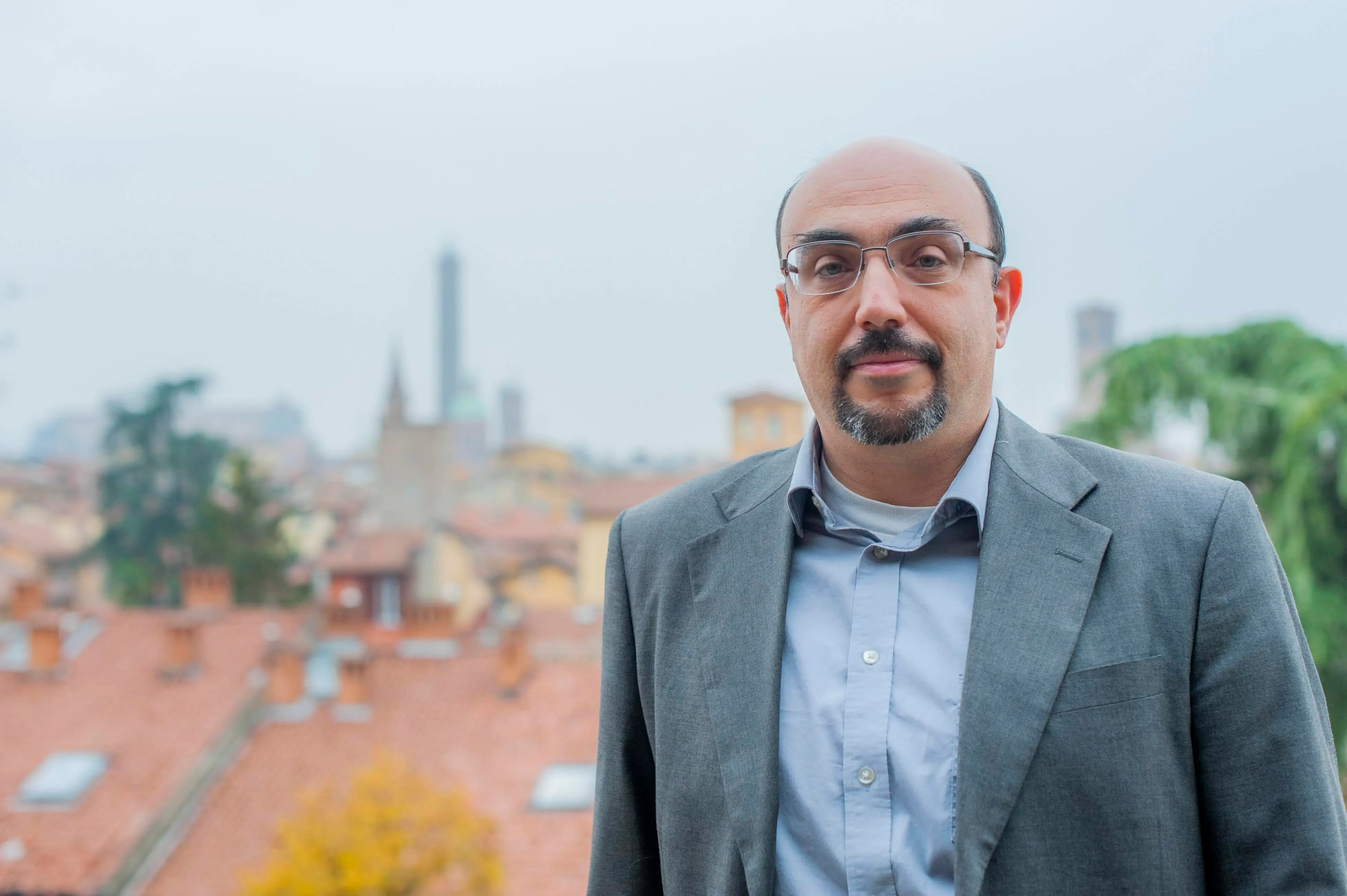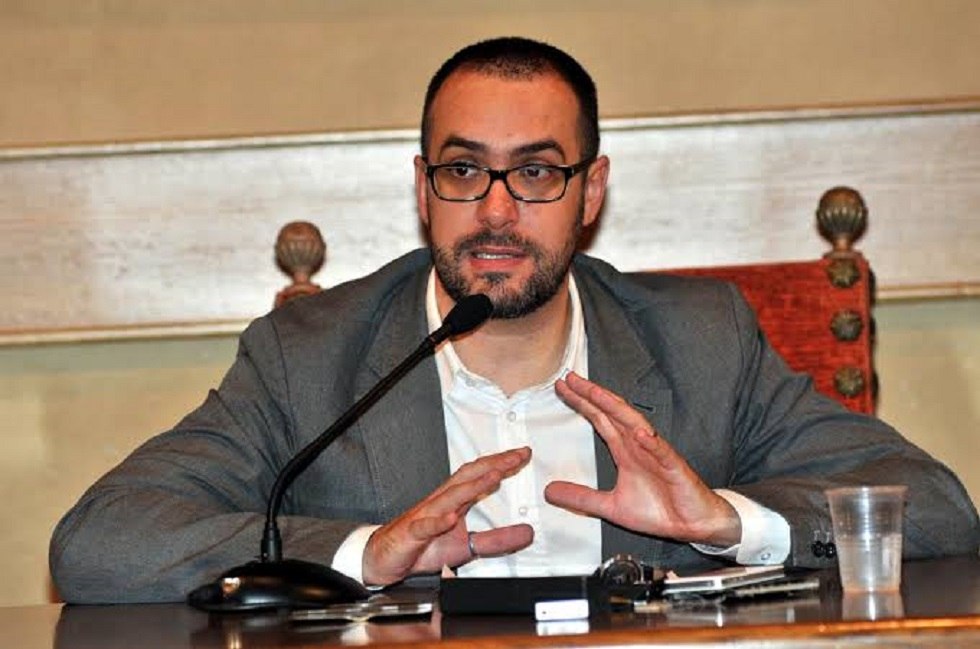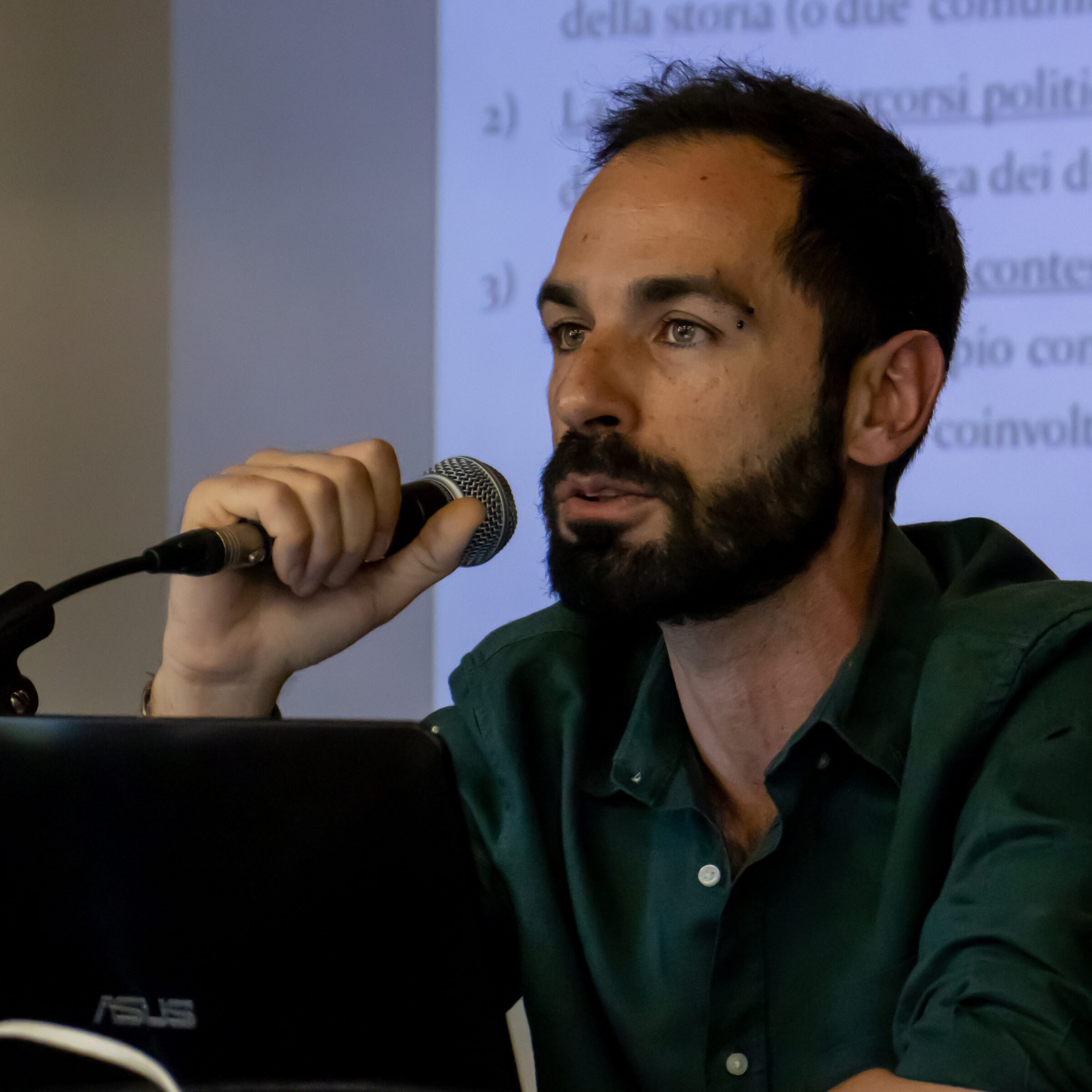Three Years and Counting: Russia’s War on Ukraine Panel Discussion
On March 18, 2025, JCU’s Guarini Institute for Public Affairs hosted the panel discussion “Three Years and Counting: Russia’s War on Ukraine.” Marking the third anniversary of Russia’s full-scale invasion of Ukraine, the event brought together the scholars Eugene Finkel, Simone Attilio Bellezza, and Marco Puleri to reflect on the ongoing conflict, its historical roots, and its far-reaching consequences. The conversation was moderated by Jonathan Aberman, Executive in Residence and Strategic Advisor to the President at John Cabot University.

Eugene Finkel is Professor of International Affairs at Johns Hopkins University. His research focuses on how institutions and individuals respond to extreme situations, like mass violence, state collapse, and rapid change. Born in Ukraine, Finkel is the author of Intent to Destroy: Russia’s Two-Hundred-Year Quest to Dominate Ukraine (Hodder and Stoughton Ltd., 2024) — a work that explores Russia’s long and violent attempts to subjugate Ukraine and the enduring resilience of the Ukrainian people. Simone Attilio Bellezza teaches Contemporary History at the University of Eastern Piedmont, and Marco Puleri is an Associate Professor and vice-coordinator of the master’s degree program in Eastern European and Eurasian Studies at the University of Bologna. Bellezza and Puleri are co-authors of La Guerra d’Indipendenza Ucraina (The Ukrainian Independence War; co-authored with Oleksiy Bondarenko and Matteo Zola, Scholé, 2025), a collaborative analysis examining how the war has transformed Ukrainian society, politics, and culture.
What Led to the Russian Aggression of Ukraine?
The panel kicked off with Finkel reflecting on whether Putin had planned this invasion for years. While definitive answers would require access to Russian archives, he outlined likely contributing factors: Putin’s desire for a grand historical legacy, his isolation during the COVID-19 pandemic, miscalculations of Western weakness, and the realization that Ukraine was slipping irreversibly out of Russia’s orbit. This led to a “now or never” mentality and contributed to the decision to invade.
Finkel also addressed the dangerous mythology framing Ukraine as Russia’s “little brother.” He highlighted how, when Russia failed to peacefully dominate Ukraine, it resorted to systemic violence targeting Ukrainian identity, a process that aligns with genocide, under the UN definition. His conclusion was clear: for the stability of Ukraine, Europe, and the world, Ukraine needs to win — or at the very least, not lose.

The Ukrainian Vision Beyond the War
The conversation then shifted to Simone Attilio Bellezza, who discussed the genesis of his and Marco Puleri’s book, La Guerra d’Indipendenza Ucraina. Their goal was to tell the war story from the Ukrainian perspective, offering Ukrainians agency in Italian public discourse and countering pervasive Russian propaganda.

Puleri brought the conversation forward to the present, focusing on Ukrainian resilience and the future. He emphasized that Ukrainians are already thinking about rebuilding and peace on their own terms after the end of the war. Ukraine, he noted, has undergone deep internal changes since 2014, balancing expertise, economic restructuring, and cultural transformation.
Bellezza raised questions about the moral responsibility of European societies to stand with Ukraine and highlighted the contrasts between authoritarian regimes and democracies, even if imperfect, like the one in Ukraine. The 2013 Euromaidan protests, he argued, reshaped Ukraine’s political landscape forever, while Russia’s future remains clouded by imperial ambitions and repression.
Conclusions
During the Q&A session, discussions addressed ceasefire talks and the historical crimes committed by Russia in Crimea, from the deportations of Crimean Tatars to the current demographic changes and forced russification of the peninsula. The panel left the audience with sobering insights but also highlighted the determination of Ukraine to chart its own future, despite the immense challenges faced.
(Tetiana Kozachanska)





